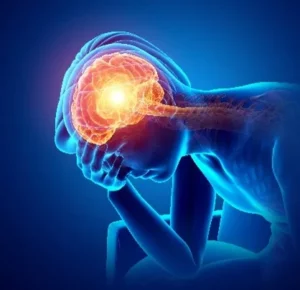Taking Stock of Stress this National Stress Awareness Month
This year’s National Stress Awareness Month arrives amid international turmoil, humanitarian crises, a perpetuated pandemic, political polarization, and economic upheaval. It’s little wonder that stress levels have reached a crescendo worldwide.
Startling Statistics
According to Gallup’s 2021 Global Emotions Report, stress levels in 2020 reached unprecedented levels worldwide—with nearly 190 million people experiencing significantly higher stress levels than in years past. The report, which endeavors to quantify global emotional wellbeing, surveyed 160,000 people across 116 countries in 2020 and early 2021. In 2020, those surveyed felt more stressed, sad, angry, and worried than at any other point in Gallup’s global tracking history—moving Gallup to conclude that 2020 was the most stressful year in recent history.

A 2021 survey conducted by The Harris Poll on behalf of the American Psychological Association echoed Gallup’s findings—with the uncertainties, setbacks, and burdens precipitated by the coronavirus pandemic having a tremendous impact on stress levels nationwide. According to the poll, more than 3 in 5 (63%) of Americans said that uncertainty about what the next few months would be like was a stress factor, and nearly half (49%) of those surveyed said that the coronavirus pandemic had made planning for the future feel impossible.
Not yet quantified are the profound impacts that this year’s Russian invasion of Ukraine has had on global stress levels. For many, it feels as though one crisis subsides only for another to develop—with the incessant cycle of crises relentlessly tapping a capacity to cope and over-saturating emotional reserves with stress.
Stress Signals

The body’s physiological and psychological responses to stress can be a double-edged sword. Stress—whether caused by dodging a car or reading an overdue bill notice—triggers the release of hormones that make our hearts pound, blood pressure rise, muscles tense, breathing quicken, and digestion to slow. Remarkably, the brain can trigger the release of hormones even before our visual centers process the perceived stressor.The brain’s amygdala, which processes emotions like fear, sends a distress signal to the hypothalamus, which releases adrenaline into the bloodstream. The release of adrenaline causes our heartbeat and breath to quicken, and our senses and awareness to sharpen. And, the influx of blood sugars and fats into the bloodstream yields a boost of energy. This acute stress response, commonly known as “fight or flight,” is vital in preparing the body to quickly react to physical danger. Once the threat of danger disappears, our body is meant to return to a normal, relaxed state.
Stress Sabotages
When the automatic stress system is activated too often, our body suffers. Chronic stress has been shown to contribute to headaches, neck and back pain, stomach and digestive issues, a weakened immune system, high blood pressure, and weight fluctuations. Stress also manifests in psychological responses, and can cause changes in the brain impacting irritability, ability to focus, depression, anger, anxiety, and sleeplessness. When it’s in a state of stress, our body has an increased need for oxygen, energy, and nutrients. Yet, when we’re stressed, we tend to crave highly-processed foods, skip meals, or lack the motivation to prepare nutritious, balanced meals. At the same time, stress disrupts our sleep; this increased fatigue leads us to reach for stimulants such as sugar or caffeine—perpetuating the unhealthy cycle.
Stress Solutions
Although we may not be able to eliminate stress, there are healthy ways to manage it.
- Recognize and assess potential stress sources or triggers
 (e.g., a relationship, a job responsibility, a health issue, a financialsetback, a commute, a humanitarian crisis): Experts recommend thinking through which stressors we can control, and identifying strategies for mitigating those stressors. For those stressors beyond our control, we may only be able to control or alter the way in which we react to the stressor. Connecting with family, friends, and/or trusted individuals can be invaluable in talking through and managing stressors.
(e.g., a relationship, a job responsibility, a health issue, a financialsetback, a commute, a humanitarian crisis): Experts recommend thinking through which stressors we can control, and identifying strategies for mitigating those stressors. For those stressors beyond our control, we may only be able to control or alter the way in which we react to the stressor. Connecting with family, friends, and/or trusted individuals can be invaluable in talking through and managing stressors. - Lean in to finding small moments to exercise control and choice: Exercising control—even in the seemingly smallest of ways—throughout our day is a powerful coping mechanism. Choose to bake, or take a run, or listen to a favorite song, or take a nap, or call a friend, or garden.
- Exercise: Physical activity is an amazing stress reliever—distracting us from the day’s worries, boosting our mood, strengthening our body, and releasing endorphins, which are our body’s feel-good neurotransmitters. Aerobic exercise also lowers blood pressure and stress hormone levels, and increases breathing and heart rate, which enables more oxygen to reach cells throughout our body. In turn, this increased flow of oxygen reduces muscle tension.
- Practice deep breathing techniques: Stress triggers fast, shallow breathing. Slow, deep breathing techniques (and related activities such as yoga) regulate our breathing, reduce our muscular tension, lower our heart rate, and calm our mind.
- Establish good sleep hygiene: Sleep is another powerful stress reducer—restoring our body, improving concentration, regulating our mood, and improving our judgement and decision-making. When we’re stressed, our senses are on high alert, which not only delays the onset of sleep but also interrupts sleep throughout the night. Without deep sleep, our body is unable to effectively repair and grow tissues. Establish a regular sleep routine that aims for seven – nine hours of sleep a night, with 30 minutes of downtown before bedtime.
- Prioritize a healthy diet: A balanced diet is an important piece of any stress management strategy. Replacing highly processed foods with a healthy diet that includes vegetables, proteins, and whole grains supports a healthy immune system, repairs damaged cells, and provides us with the extra energy needed to cope with stress.
To learn more about Anodyne Pain & Wellness Solutions’ collaborative and holistic approach to patient stress management and well-being visit https://anodynepain.com/ today.
Related Articles
Whether you’re struggling to diagnose a chronic pain condition or you’re pursuing wellness treatments to stay healthy and feel great, we’re here to support you at every step of your health care journey.


